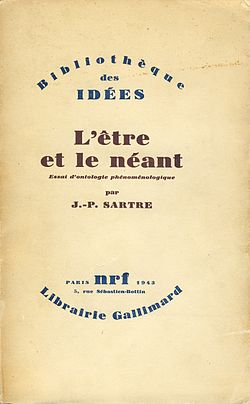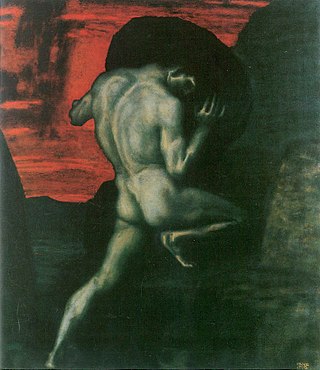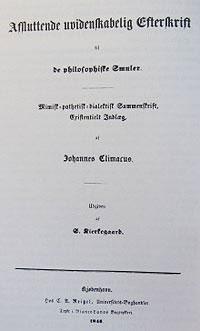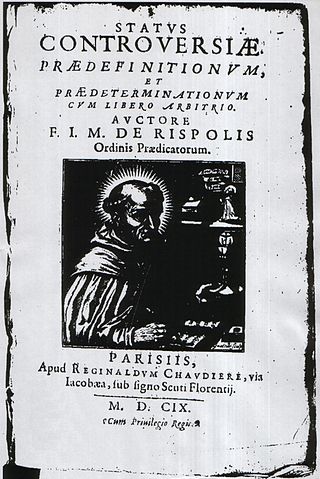Academic work
Gualeni's work takes place in the intersection between continental philosophy and the design of virtual worlds. [14] Given the practical and interdisciplinary focus of his research - and depending on the topics and the resources at hand - his output takes the form of academic texts and/or of interactive digital experiences. [15] In his articles and essays, he presents computers as instruments to prefigure and design ourselves and our worlds, and as gateways to experience alternative possibilities of being. [8] [9] [16]
In 2015, Gualeni released the book Virtual Worlds as Philosophical Tools: How to Philosophize with a Digital Hammer with Palgrave Macmillan. Inspired by post-phenomenology and by Martin Heidegger's philosophy of technology, the book attempts to answer questions such as: will experiencing worlds that are not 'actual' change our ways of structuring thought? Can virtual worlds open up new possibilities to philosophize? [8]
His 2020 book with Daniel Vella, Virtual Existentialism: Meaning and Subjectivity in Virtual Worlds, engages with the question of what it means to exist in virtual worlds. Drawing from the tradition of existentialism, it introduces the notion of 'virtual subjectivity' and discusses the experiential and existential mechanisms by which can move into, and out of, virtual subjectivities. It also includes chapters that specifically leverage the work of Helmuth Plessner, Peter W. Zapffe, Jean-Paul Sartre and Eugen Fink to think through the existential significance of the virtual. [9]
His contributions to the edited volumes Experience Machines: Philosophy in Virtual Worlds, [17] Towards a Philosophy of Digital Media, [16] and Perspectives on the European Videogame [18] similarly focus on the experiential and existential effects and possibilities disclosed by virtual technologies.
One of the central themes of Gualeni's work revolves around the fact that the history of philosophy has, until recently, merely been the history of written thought. He argues that we are, however, witnessing a technological shift in how philosophy is pursued, valued, and communicated. In that respect, Gualeni advances the claim that digital media can constitute an alternative and a complement to our almost-exclusively linguistic approach to developing and communicating thought. [8] [19] He considers virtual worlds to be philosophically viable and advantageous in contexts like thought experiments (where we can objectively test and evaluate possible courses of action and corresponding consequences), in the case of philosophical inquiries concerning non-actual state of affairs, and for research into non-human phenomenologies. [8] [16]

Existentialism is a form of philosophical inquiry that explores the issue of human existence. Existentialist philosophers explore questions related to the meaning, purpose, and value of human existence. Common concepts in existentialist thought include existential crisis, dread, and anxiety in the face of an absurd world, as well as authenticity, courage, and virtue.

Phenomenology is the philosophical study of objectivity and reality as subjectively lived and experienced.

Being and Nothingness: An Essay on Phenomenological Ontology, sometimes published with the subtitle A Phenomenological Essay on Ontology, is a 1943 book by the philosopher Jean-Paul Sartre. In the book, Sartre develops a philosophical account in support of his existentialism, dealing with topics such as consciousness, perception, social philosophy, self-deception, the existence of "nothingness", psychoanalysis, and the question of free will.

Absurdism is the philosophical theory that the universe is irrational and meaningless. It states that trying to find meaning leads people into a conflict with the world. This conflict can be between rational man and an irrational universe, between intention and outcome, or between subjective assessment and objective worth, but the precise definition of the term is disputed. Absurdism claims that the world as a whole is absurd. It differs in this regard from the less global thesis that some particular situations, persons, or phases in life are absurd.
Continental philosophy is a term used to describe some philosophers and philosophical traditions that do not fall under the umbrella of analytic philosophy. However, there is no academic consensus on the definition of continental philosophy. Prior to the twentieth century, the term "continental" was used broadly to refer to philosophy from continental Europe. A different use of the term originated among English-speaking philosophers in the second half of the 20th century, who used it to refer to a range of thinkers and traditions outside the analytic movement. Continental philosophy includes German idealism, phenomenology, existentialism, hermeneutics, structuralism, post-structuralism, deconstruction, French feminism, psychoanalytic theory, and the critical theory of the Frankfurt School as well as branches of Freudian, Hegelian and Western Marxist views. There is widespread influence and debate between the analytic and continental traditions; some philosophers see the differences between the two traditions as being based on institutions, relationships, and ideology rather than anything of significant philosophical substance.
Gameplay is the specific way in which players interact with a game, and in particular with video games. Gameplay is the pattern defined through the game rules, connection between player and the game, challenges and overcoming them, plot and player's connection with it. Video game gameplay is distinct from graphics and audio elements. In card games, the equivalent term is play.
Contemporary philosophy is the present period in the history of Western philosophy beginning at the early 20th century with the increasing professionalization of the discipline and the rise of analytic and continental philosophy.
Christian existentialism is a theo-philosophical movement which takes an existentialist approach to Christian theology. The school of thought is often traced back to the work of the Danish philosopher and theologian Søren Kierkegaard (1813–1855) who is widely regarded as the father of existentialism.

Nausea is a philosophical novel by the existentialist philosopher Jean-Paul Sartre, published in 1938. It is Sartre's first novel.
Feminism is a collection of movements aimed at defining, establishing, and defending equal political, economic, and social rights for women. Existentialism is a philosophical and cultural movement which holds that the starting point of philosophical thinking must be the individual and the experiences of the individual, that moral thinking and scientific thinking together are not sufficient for understanding all of human existence, and, therefore, that a further set of categories, governed by the norm of authenticity, is necessary to understand human existence. This philosophy analyzes relationships between the individual and things, or other human beings, and how they limit or condition choice.
Existential psychotherapy is a form of psychotherapy based on the model of human nature and experience developed by the existential tradition of European philosophy. It focuses on concepts that are universally applicable to human existence including death, freedom, responsibility, and the meaning of life. Instead of regarding human experiences such as anxiety, alienation and depression as implying the presence of mental illness, existential psychotherapy sees these experiences as natural stages in a normal process of human development and maturation. In facilitating this process of development and maturation existential psychotherapy involves a philosophical exploration of an individual's experiences while stressing the individual's freedom and responsibility to facilitate a higher degree of meaning and well-being in his or her life.

In psychology and psychotherapy, existential crises are inner conflicts characterized by the impression that life lacks meaning or by confusion about one's personal identity. Existential crises are accompanied by anxiety and stress, often to such a degree that they disturb one's normal functioning in everyday life and lead to depression. This negative attitude towards life and meaning reflects various positions characteristic of the philosophical movement known as existentialism. Synonyms and closely related terms include existential dread, existential vacuum, existential neurosis, and alienation. The various aspects associated with existential crises are sometimes divided into emotional, cognitive, and behavioral components. Emotional components refer to the feelings they provoke, such as emotional pain, despair, helplessness, guilt, anxiety, or loneliness. Cognitive components encompass the problem of meaninglessness, the loss of personal values or spiritual faith, and reflections about one's own mortality. Outwardly, existential crises often express themselves in addictions, anti-social and compulsive behavior.

Concluding Unscientific Postscript to the Philosophical Fragments is a major work by Søren Kierkegaard. The work is an attack against Hegelianism, the philosophy of Hegel, and especially Hegel's Science of Logic. The work is also famous for its dictum, Subjectivity is Truth. It was an attack on what Kierkegaard saw as Hegel's deterministic philosophy. Against Hegel's system, Kierkegaard is often interpreted as taking the side of metaphysical libertarianism or free will, though it has been argued that an incompatibilist conception of free will is not essential to Kierkegaard's formulation of existentialism.
The proposition that existence precedes essence is a central claim of existentialism, which reverses the traditional philosophical view that the essence of a thing is more fundamental and immutable than its existence. To existentialists, human beings—through their consciousness—create their own values and determine a meaning for their life because the human being does not possess any inherent identity or value. That identity or value must be created by the individual. By posing the acts that constitute them, they make their existence more significant.
Black existentialism or Africana critical theory is a school of thought that "critiques domination and affirms the empowerment of Black people in the world". Although it shares a word with existentialism and that philosophy's concerns with existence and meaning in life, Black existentialism is "is predicated on the liberation of all Black people in the world from oppression". Black existentialism may also be seen as method, which allows one to read works by African-American writers such as W. E. B. Du Bois, James Baldwin, and Ralph Ellison in an existentialist frame.As well as the work of Civil Rights Activists such as Malcolm X and Cornel West. Lewis Gordon argues that Black existentialism is not only existential philosophy produced by Black philosophers but is also thought that addresses the intersection of problems of existence in black contexts.

Gary Cox is a British philosopher and biographer and the author of several books on Jean-Paul Sartre, existentialism, general philosophy, ethics and philosophy of sport.

Philosophy in Malta refers to the philosophy of Maltese nationals or those of Maltese descent, whether living in Malta or abroad, whether writing in their native Maltese language or in a foreign language. Though Malta is not more than a tiny European island in the middle of the Mediterranean Sea, for the last six centuries its very small population happened to come in close contact with some of Europe's main political, academic and intellectual movements. Philosophy was among the interests fostered by its academics and intellectuals.
Christian existential apologetics differs from traditional approaches to Christian apologetics by basing arguments for Christian theism on the satisfaction of existential needs rather than on strictly logical or evidential arguments. Christian existential apologetics may also be distinguished from Christian existentialism and from experiential apologetics. The former is a philosophic outlook concerned with the human condition in general; the latter consists of evidential argumentation based on religious experience.
Gua-Le-Ni; or, The Horrendous Parade is an action puzzle video game designed by Stefano Gualeni. Developed between 2011 and 2012 by Double Jungle S.a.S. and Stefano Gualeni, Gua-Le-Ni is the first commercially released casual video game that was designed and tuned with the support of biometric experiments.

Something Something Soup Something is a free browser video game and "interactive thought experiment" developed by Stefano Gualeni and his team at the Institute of Digital Games. It was released in late 2017. In the game, the player must decide whether or not things are, in their opinion, soup. The game is inspired on the work of philosopher Ludwig Wittgenstein and on the linguistic experiments of Eleanor Rosch and Carolyn B. Mervis.









